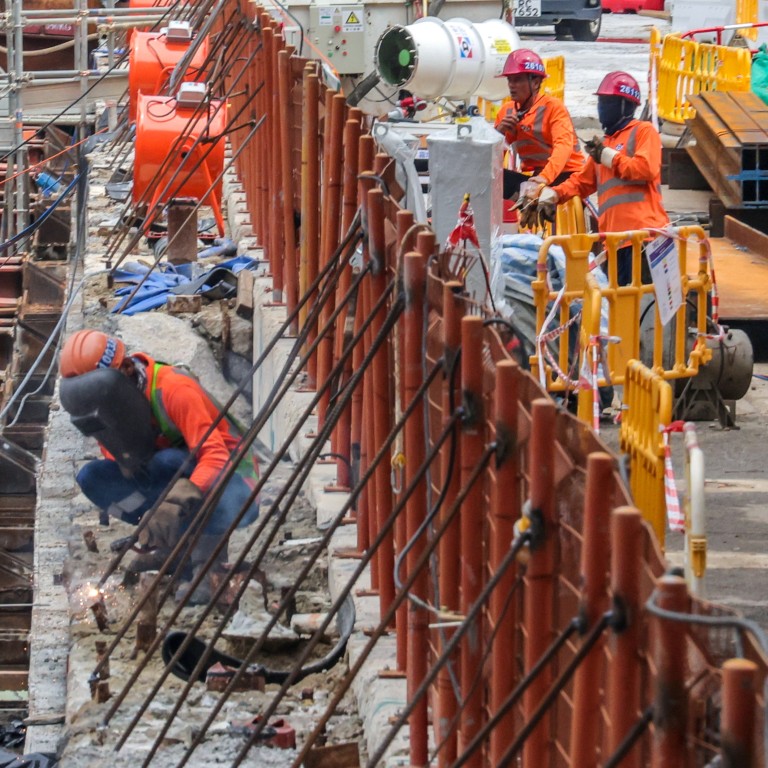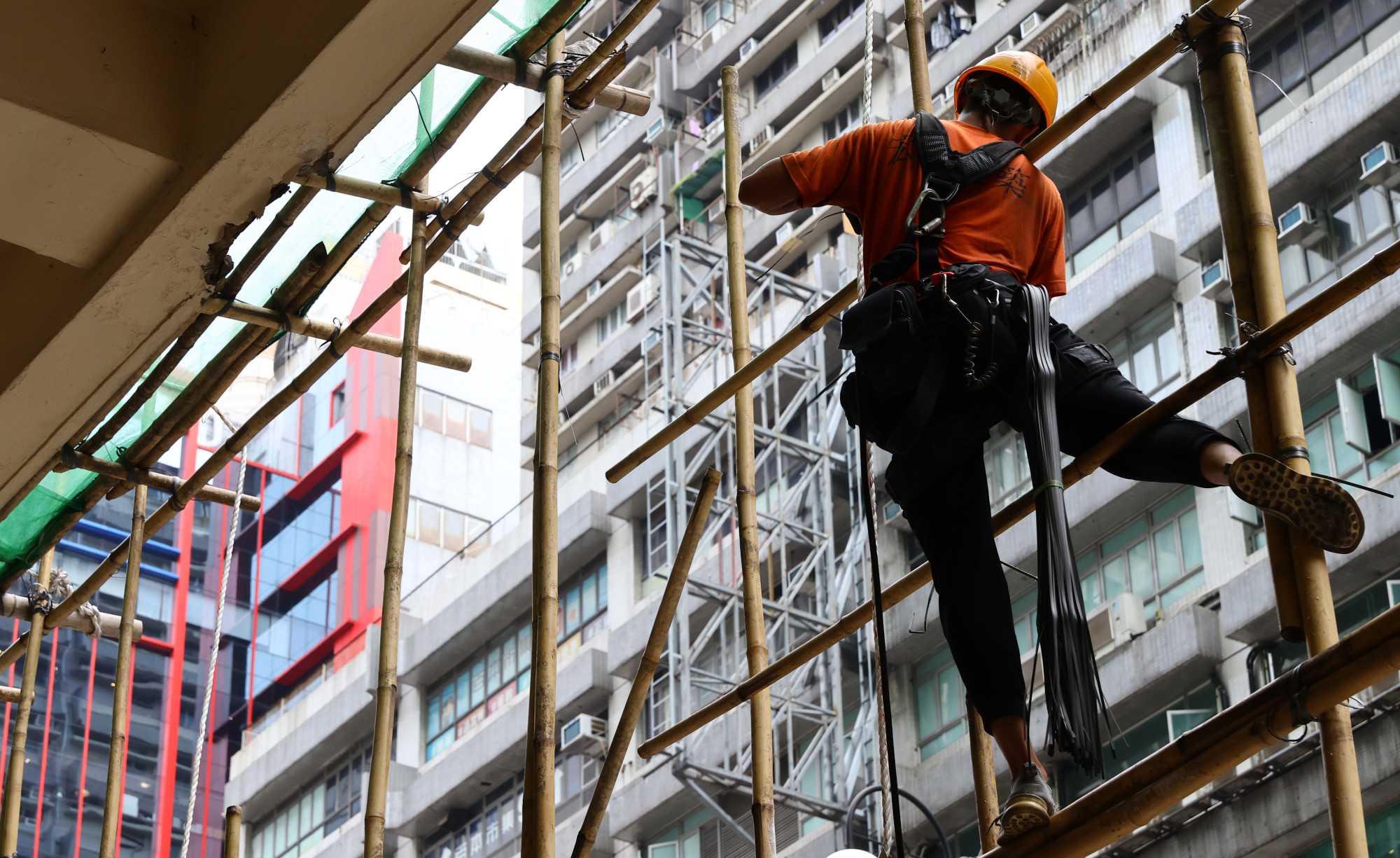
3 fatal Hong Kong industrial accidents in 1 day show urgent need for stricter supervision and tougher penalties, unions and lawmakers say
- Codes of practice must be better enforced and courts challenged when employers at fault given light penalties, unions and lawmakers say
- Call comes after three workers died in separate industrial accidents on Saturday
A surge in fatal industrial accidents in Hong Kong has highlighted the urgent need for authorities to better enforce codes of practice for occupational safety in the construction industry, unionists and lawmakers have said.
In the first quarter of 2023, 13 fatalities were reported in the construction industry, almost double the seven cases for the same period last year.

Offenders were fined an average of HK$22,928 (US$2,926) for 296 convictions over fatal accidents tied to occupational safety and health violations between January 2020 and March 2022. Including non-fatal cases, the average fine was HK$7,813.
Lee Kwong-sing, a safety adviser with the Hong Kong Construction Industry Employees General Union, said the lenient penalties often encouraged malpractice by employers and contractors.
This was despite the maximum penalty for serious industrial accidents being raised in April from HK$500,000 (US$63,800) and six months in jail to HK$10 million and two years’ imprisonment.
“We seldom see employers or people responsible being sentenced to jail. I wonder if the department has reviewed the cases or tried to lodge appeals to challenge court decisions [to enhance the deterrent effect],” Lee, who is also a chartered safety and health practitioner, said.
Authorities should increase safety patrols at construction sites and better enforce the existing codes of practice, he said, adding that in the event of non-compliance, work suspension orders should be issued in a timely manner.
Lawmaker Gary Chan Hak-kan also stressed the need for more stringent sentencing for repeat offenders, and said the government should step up enforcement in view of the manpower shortage.
“Temporary workers with insufficient training and safety awareness are often hired to fight deadlines on numerous ongoing mega projects,” he said, adding the situation was partly behind the increase in fatal industrial accidents.
The Association for the Rights of Industrial Accident Victims called Saturday the “darkest day in the construction industry”.
A 34-year-old man died at a construction site near the airport after suffering a suspected electrical shock. A 54-year-old man died after fainting on a staircase at a redevelopment site in Cheung Sha Wan.
In the third case, a 40-year-old man died when a wall collapsed during the demolition of a village house in Yuen Long.
Fay Siu Sin-man, chief executive of the association, told the Post she had been in contact with his family. “They should be entitled to compensation and they will go through the necessary legal processes.”
Siu said employees who died at work because of an accident or from a prescribed occupational disease were entitled to three types of compensation.
The first is based on the age and earnings of the deceased. The minimum amount to be paid to the victim’s family is HK$473,610, according to the Labour Department.
The second one covers funeral and medical expenses and is capped at HK$92,670, while the third is offered if the employer is found to be at fault for the worker’s death.
Personal injury lawyer Kenneth Lam, said the compensation offered to victims was “greatly insufficient”.
He said the statutory maximum monthly income for the purpose of calculating compensation was about HK$36,000, and this did not take into account future salary increases.
Lam pointed to junior skilled workers as an example. They could start as an apprentice making HK$30,000 a month, but after a few years in the industry could be earning more than HK$50,000.
“The court is reluctant to acknowledge possible future salary increases,” he said.
It also often took two to three years for the victim’s family to receive compensation, Lam noted.
The Post has contacted the Labour Department for comment.


